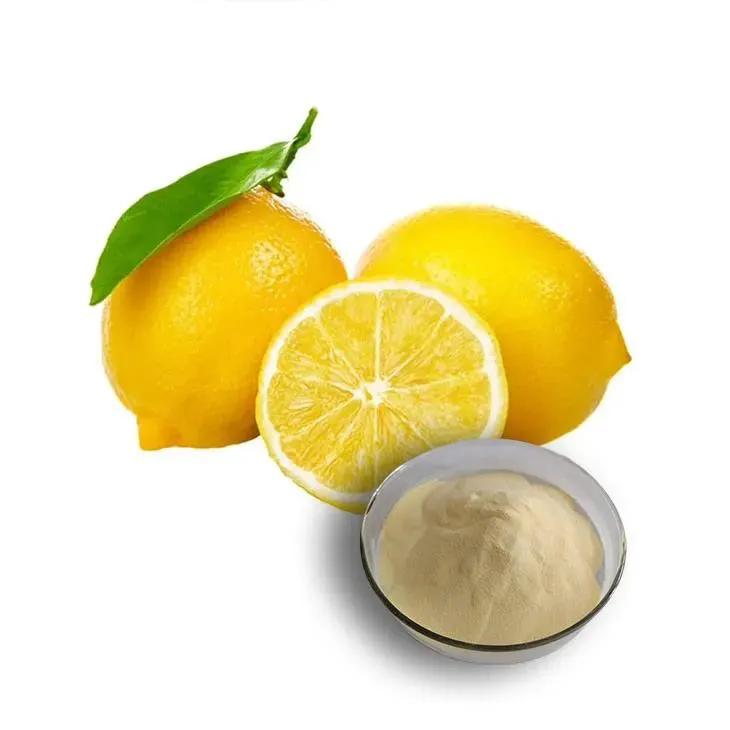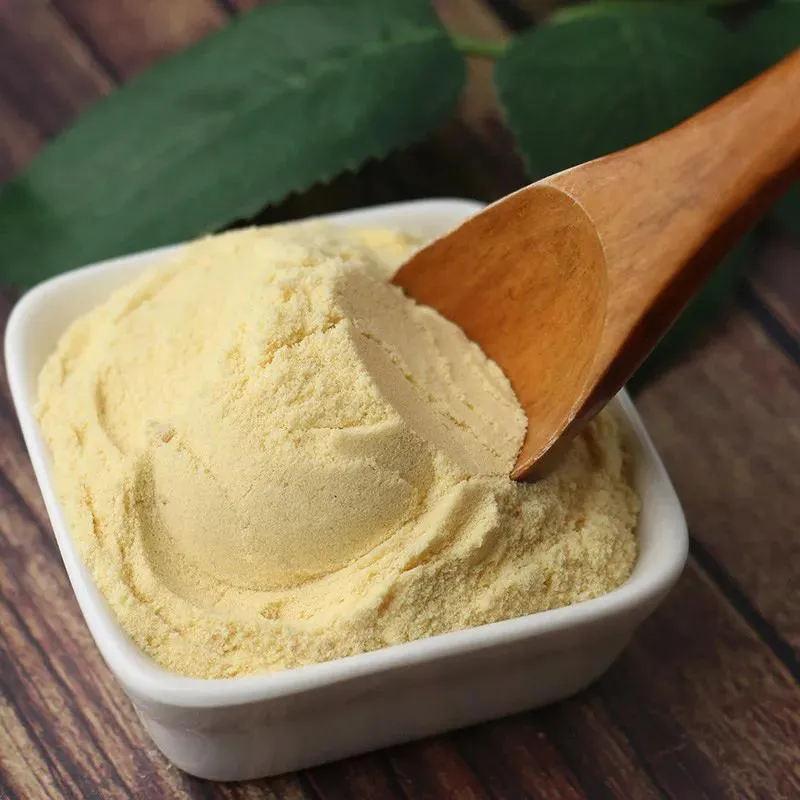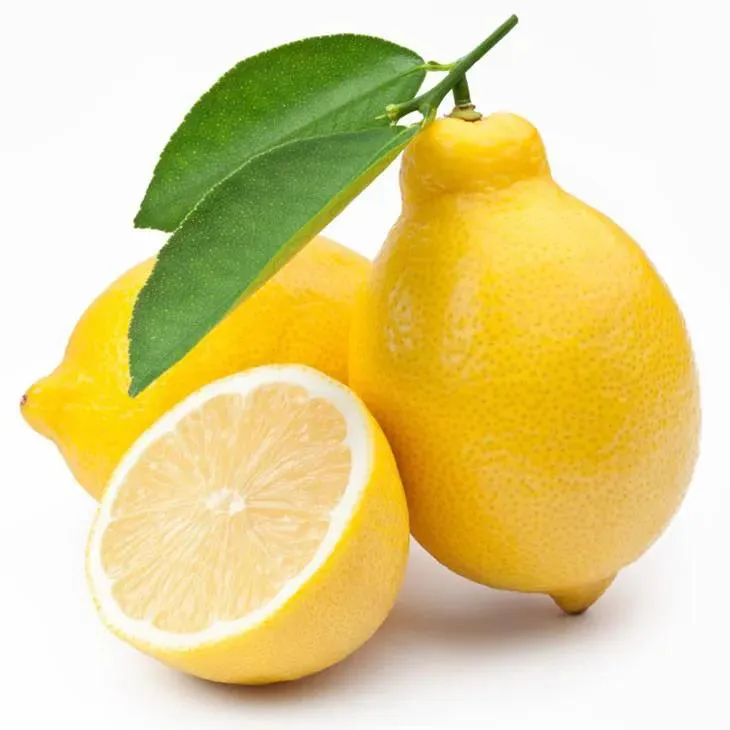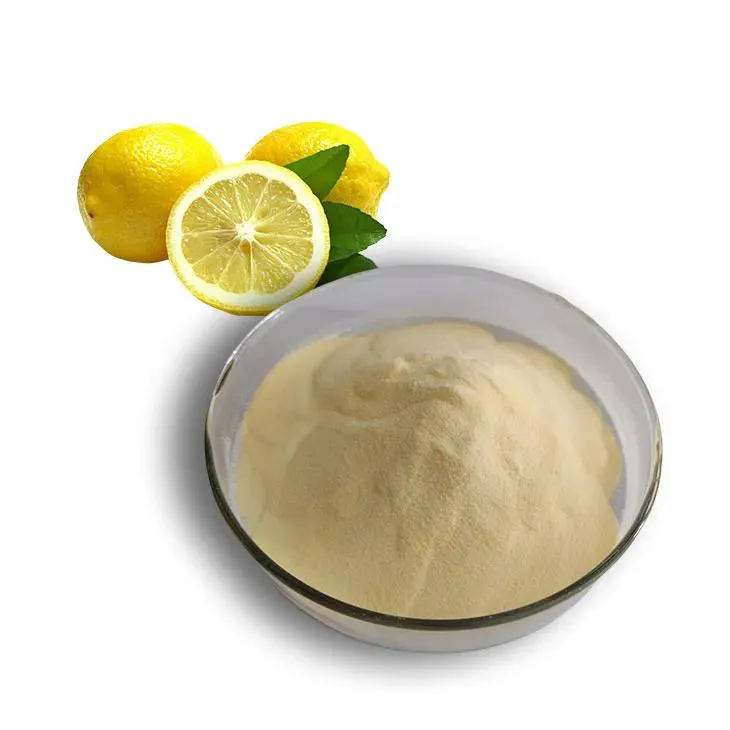- 0086-571-85302990
- sales@greenskybio.com
Extract lemon juice powder by steam distillation.
2024-11-30

1. Introduction
Lemon Juice Powder has gained significant popularity in various industries due to its concentrated flavor and numerous health benefits. Steam distillation is a remarkable method for extracting Lemon Juice Powder, which offers a high - quality end product. This process not only preserves the essential components of lemon juice but also provides a convenient form for storage and transportation. In this article, we will explore in detail the process of extracting Lemon Juice Powder by steam distillation, starting from the very basic step of selecting fresh lemons.

2. Selection of Fresh Lemons
The quality of the final lemon juice powder is highly dependent on the quality of the lemons used at the start of the process. Fresh lemons are the key ingredient. When selecting lemons, several factors need to be considered:
- Ripeness: Fully ripe lemons are preferred as they contain a higher concentration of the desired flavor compounds and nutrients. Ripe lemons are usually firm but yield slightly to gentle pressure and have a bright yellow color.
- Size: Although size may not directly affect the quality of the extract, larger lemons may be more convenient to handle during the extraction process.
- Quality: Lemons should be free from blemishes, bruises, and signs of mold or decay. These imperfections can introduce unwanted substances into the extract.

3. The Steam Distillation Process
Steam distillation is a complex yet efficient process for extracting lemon juice powder.
3.1 Preparation of Lemons
Once the fresh lemons are selected, they need to be prepared for the distillation process. The lemons are washed thoroughly to remove any dirt, pesticides, or other contaminants on the surface. After washing, the lemons are typically sliced or juiced. If sliced, the slices should be of a uniform thickness to ensure even exposure to steam during distillation. If juiced, the lemon juice is collected and ready for the next step.
3.2 The Distillation Setup
The distillation setup consists of several key components. There is a steam generator, a distillation flask, a condenser, and a collection vessel. The lemon material (either slices or juice) is placed in the distillation flask. Steam is then generated in the steam generator and introduced into the distillation flask containing the lemon material.
3.3 Separation of Components
As the steam passes through the lemon material, it causes the volatile components of the lemon juice to vaporize. These volatile components include the essential oils, flavor compounds, and some water - soluble substances. The vapor then travels through the condenser, where it is cooled and condensed back into a liquid. This condensed liquid contains the concentrated essence of the lemon juice.
3.4 Collection of the Extract
The condensed liquid is collected in the collection vessel. This liquid is a mixture of water, essential oils, and other flavor - rich compounds. It is important to note that at this stage, the extract is still in a liquid form and further processing is required to convert it into a powder.

4. Factors Affecting the Extraction
Several factors play a crucial role in the steam distillation extraction of lemon juice powder.
4.1 Temperature
Temperature is a significant factor. A proper temperature needs to be maintained throughout the distillation process. If the temperature is too low, the volatile components may not vaporize efficiently, leading to a lower yield of the desired extract. On the other hand, if the temperature is too high, it may cause the degradation of some of the sensitive flavor compounds and essential oils. The optimal temperature range typically lies between [X]°C and [Y]°C, depending on the specific characteristics of the lemon juice and the distillation equipment used.
4.2 Pressure
Pressure also affects the distillation process. Changes in pressure can influence the boiling point of the components in the lemon juice. Maintaining a consistent pressure helps in ensuring a stable and efficient distillation. Lowering the pressure can sometimes be beneficial as it can lower the boiling point of the substances, which may be useful for extracting more volatile components without subjecting them to excessive heat. However, precise control of pressure is required to avoid any negative impacts on the quality of the extract.

5. Conversion to Powder
After obtaining the liquid extract from the steam distillation, the next step is to convert it into a powder form.
5.1 Drying Methods
There are several drying methods available for this purpose. One common method is spray drying. In spray drying, the liquid extract is sprayed into a hot chamber where the water is rapidly evaporated, leaving behind a fine powder. Another method is freeze - drying, which involves freezing the liquid extract first and then removing the water through sublimation. Freeze - drying is known for preserving the quality of the flavor compounds better than some other drying methods, but it is also more expensive and time - consuming.
5.2 Additives and Preservation
During the conversion to powder, additives may be added to improve the stability and shelf - life of the lemon juice powder. For example, anti - caking agents can be added to prevent the powder from clumping. Additionally, antioxidants may be added to protect the flavor and nutritional value of the powder from degradation due to oxidation. The choice of additives depends on the intended use of the lemon juice powder and the regulations governing its use in different industries.
6. Applications of Lemon Juice Powder
Lemon juice powder has a wide range of applications in various industries.
6.1 Food Industry
In the food industry, lemon juice powder is used as a flavoring agent in a variety of products. It can be added to baked goods such as cakes, cookies, and muffins to impart a tangy lemon flavor. It is also used in the production of beverages, including powdered drink mixes, iced teas, and fruit juices. Lemon juice powder can be a convenient alternative to fresh lemon juice in processed foods as it has a longer shelf - life and is easier to handle and store.
6.2 Pharmaceutical Industry
The pharmaceutical industry also makes use of lemon juice powder. Lemon contains certain nutrients and bioactive compounds that may have potential health benefits. For example, it may be used in the formulation of dietary supplements or as an ingredient in some medications for its antioxidant and anti - inflammatory properties. However, strict quality control and purification processes are required in this industry to ensure the safety and efficacy of products containing lemon juice powder.
6.3 Cosmetic Industry
In the cosmetic industry, lemon juice powder is used in various skin - care products. Its natural acidity and antioxidant properties make it suitable for use in products such as face masks, scrubs, and creams. Lemon juice powder can help to exfoliate the skin, brighten the complexion, and protect the skin from environmental damage. However, it is important to note that the use of lemon juice - based products on the skin may cause irritation in some individuals, especially those with sensitive skin.
7. Conclusion
Steam distillation is an effective method for extracting lemon juice powder. Starting from the careful selection of fresh lemons, through the complex distillation process, and considering the factors that affect the extraction, a high - quality lemon juice powder can be obtained. The conversion of the liquid extract into powder form, along with the addition of appropriate additives, ensures its stability and usability in different industries. The wide - ranging applications of lemon juice powder in the food, pharmaceutical, and cosmetic industries highlight its significance and value. With further research and development, the extraction process can be optimized further to improve the quality and yield of lemon juice powder.
FAQ:
What are the key steps in extracting lemon juice powder by steam distillation?
The key steps start with selecting fresh lemons. Then, steam is passed through the lemon juice. The steam helps to separate the essential components. After that, the vapor is condensed, and the resulting liquid is further processed to obtain the lemon juice powder.
How does temperature affect the steam distillation extraction of lemon juice powder?
Temperature plays a significant role. Higher temperatures can increase the rate of evaporation during steam distillation. However, if the temperature is too high, it may cause the degradation of some of the volatile components in the lemon juice. So, an optimal temperature range needs to be maintained to ensure high - quality extraction of lemon juice powder.
What is the role of pressure in steam distillation for lemon juice powder extraction?
Pressure affects the boiling point of the lemon juice. By adjusting the pressure during steam distillation, we can control the temperature at which the distillation occurs. Lower pressure can lower the boiling point, which can be beneficial as it may help to preserve some heat - sensitive components in the lemon juice during the extraction process.
What are the main applications of lemon juice powder in the food industry?
In the food industry, lemon juice powder is used as a flavoring agent in various products such as baked goods, beverages, and confectionery. It can add a tangy lemon flavor. It also has preservative properties in some cases, helping to extend the shelf life of certain food items.
How can one ensure the high - quality extraction of lemon juice powder by steam distillation?
To ensure high - quality extraction, start with fresh, high - quality lemons. Control the temperature and pressure precisely during steam distillation. Also, use proper equipment to prevent contamination and ensure efficient separation of the components. Regularly monitor the process to make any necessary adjustments.
Related literature
- Steam Distillation: Principles and Applications in Natural Product Extraction"
- "Lemon Juice Processing and Its Derived Products: A Comprehensive Review"
- "The Role of Steam Distillation in Obtaining High - Quality Fruit Juice Powders"
- ▶ Hesperidin
- ▶ citrus bioflavonoids
- ▶ plant extract
- ▶ lycopene
- ▶ Diosmin
- ▶ Grape seed extract
- ▶ Sea buckthorn Juice Powder
- ▶ Beetroot powder
- ▶ Hops Extract
- ▶ Artichoke Extract
- ▶ Reishi mushroom extract
- ▶ Astaxanthin
- ▶ Green Tea Extract
- ▶ Curcumin Extract
- ▶ Horse Chestnut Extract
- ▶ Other Problems
- ▶ Boswellia Serrata Extract
- ▶ Resveratrol Extract
- ▶ Marigold Extract
- ▶ Grape Leaf Extract
- ▶ blog3
- ▶ blog4
-
Nature's Bounty Vitamin K2
2024-11-30
-
Chinese Saffron Extract Powder Factory.
2024-11-30
-
Cactus Extract Supplier
2024-11-30
-
Optimal Bioavailability of Vitamin C.
2024-11-30
-
Extraction process of wheat germ extract.
2024-11-30
-
Troxerutin
2024-11-30
-
Thunder God Vine Extract
2024-11-30
-
Pine bark Extract Powder
2024-11-30
-
Diosmin
2024-11-30
-
Rosemary extract
2024-11-30
-
Hawthorn Extract
2024-11-30
-
Dandelion Leaf Extract
2024-11-30
-
Europen Bilberry Extract
2024-11-30
-
Quercetin
2024-11-30
-
Kupilu Extract
2024-11-30





















